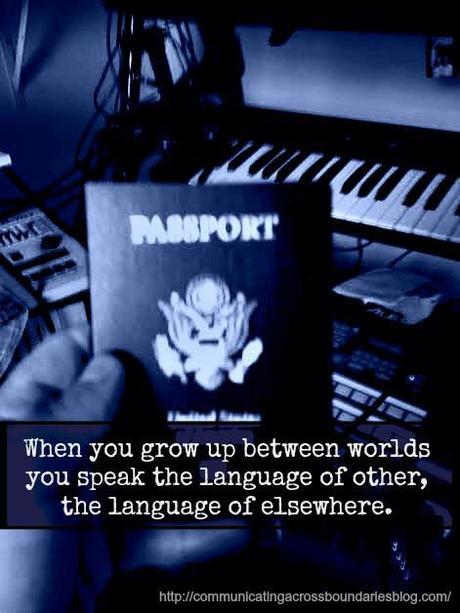
“A janitor is sweeping the courtyard. He’s a dark shade of sunny……So I go to Azibo, the janitor. He’s old and I’m young, but we both speak the language of elsewhere. We become buddies.” No Shade Under the Sun by Valerie Wilson
**************
I stand in a crowded subway, pinned in on all sides. My eyes sweep the crowd, silent observer of those around me. I’m looking for those who may speak the “language of elsewhere.” It almost becomes a private game as I try to guess who else speaks this language. The young mom who didn’t know how to get on the subway and so was impatiently jostled – she speaks the language of elsewhere. The two students who are chatting in staccato German? They speak the language of elsewhere. And the women in hijab? She too speaks this language. There are others, but most of us are silent. Afraid that there will not be interpreters for elsewhere, that elsewhere is too vague and abstract to be interpreted properly. But for us, it is neither vague nor abstract – it is real.
When you grow up between worlds you speak the language of other, the language of elsewhere. While your appearance may say one thing, your inner life, should it be revealed, would say something completely different.
Loneliness floods over me – tsunami like in its strength. How could I possibly look and talk like so many around me yet feel this alone? And yet what prevents me from reaching out to those who also know this language, those who also experience the deep loneliness that is ‘other’.
The subway stops and I am birthed with the crowds onto the platform. I head home along a street that feels both familiar and foreign to me. I pass by houses that I’ve passed many times in the six plus years we have lived here. I pass by some people that I recognize but who I don’t know. I come to the Village Grill, the small neighborhood restaurant owned by Teddy, though we call him Theo. I stop and chat – he is a fixture in this neighborhood, as solid as the street lamps lining the side of the road. He’s Greek and proud of it. For a short time I belong.
*************
Every September the streets of Cambridge and Boston fill with people who speak the language of elsewhere. They may be undergrad students, they may be those with fellowships, they may be visiting professors, they may be immigrants newly arrived, they may be refugees, finally settled after years of trying to get paperwork in order, or they may be third culture kids, those whose looks belie who they are on the inside, what their life experience has held thus far. There are all kinds of reasons but the language is the same. They are ‘other’. And initially life can overwhelm and threaten to undo them.
It’s not only Boston. It’s the streets of Atlanta, Seattle, Minneapolis, New Orleans, Miami, and so many more. It’s the expat communities in Cairo, Shanghai, Bangkok, and Phnom Penh.
And to bridge this divide, this chasm of elsewhere, this block in language understanding it is imperative to reach across and learn to speak the language of elsewhere.
It’s not that hard. There’s no grammar or syntax involved and there is no morphology. Prefixes, suffixes, or infixes are absent. You don’t have to worry about past tense, or present perfect or superlatives.
But there is a lexicon. It includes tea, coffee, talk, meals, reaching out, asking questions, sometimes shopping, most of all – time. Time – that precious commodity that we think we have so little of until work ends, retirement begins, and suddenly we have all the time in the world.
All of us have spoken the language of elsewhere at some point – whether as a tourist or as a resident. And it starts out fun – it’s exciting! Everything is new and different. And then day 11 of our journey comes and it’s no longer exciting. Instead, everything is different and different is no longer good. Different is hard. Different means I don’t know the rules. Different means me and the stranger both wear shoes, but I wear them better. Different is lonely.
Into the lonely steps the one who has experienced this language before. There to lend a hand, an ear, even a shoulder to cry on. So this fall, if you’ve ever spoken the language of elsewhere – look around you and seek out those who are other, who share this language. It’s the only way to bridge the divide.

